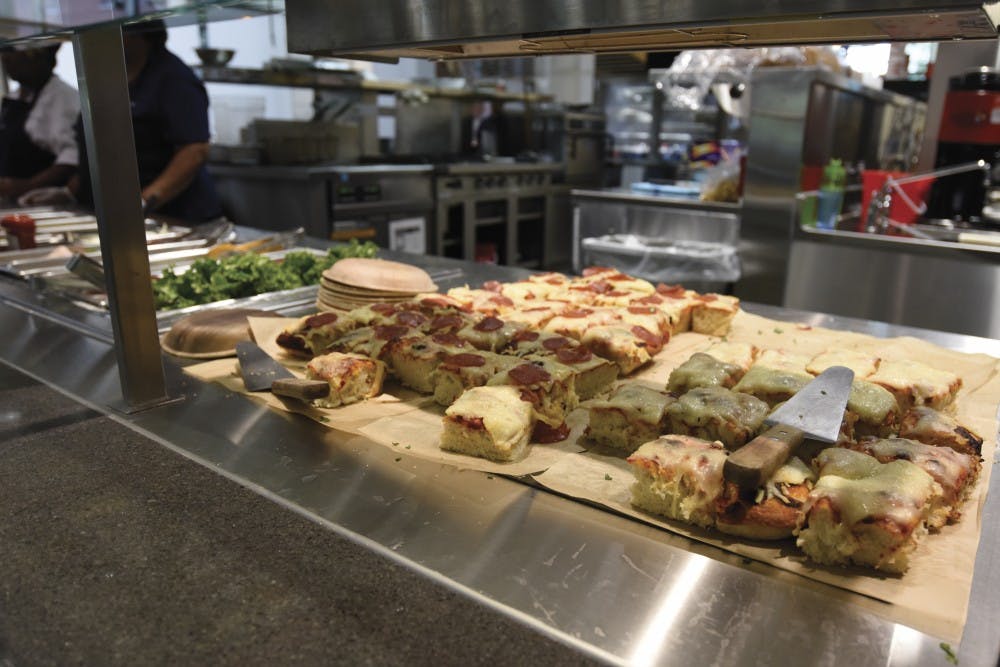One in four Philadelphians are at risk for hunger, according to the Greater Philadelphia Coalition Against Hunger, and Penn Dining says they are doing what they can to make sure that ratio goes down.
“We have a really robust campaign in terms of food and waste,” Director of Business Services and Hospitality Services Pam Lampitt said.
Penn Dining’s efforts to reduce food waste start at the source, with the way Bon Appétit buys ingredients and structures the menu.
“They bring in food when they need it, how they need it, to produce the multitude of food on the campus,” Lampitt said. “With that being said, you know, there’s always times when there’s leftover food.”
This leftover food is handled in two ways, Lampitt said, in compliance with Department of Health standards: Food that sits out and can be touched must be thrown out, but food in a warming cabinet or on a serving line can be recovered.
Leftover food that is recoverable is often used in recipes served the following day.
Bon Appétit and Penn also have a partnership with a Philadelphia-based organization called Philabundance that helps them determine where they can donate leftover food.
“We actually worked with Feeding America who in turn worked with identifying Philabundance as the ... organization that we could work with to identify a receiving agency,” Bon Appétit’s Resident District Manager Stephen Scardina said. “Feeding America actually has really strict guidelines in regard to how we handle the food, what can be donated or recovered, what cannot and how that food has to be handled, maintained and labeled.”
Food that can be donated is sent to a shelter for women and children. Last year, 1920 Commons and Hill House both participated in the food recovery program. Commons donated about 1,400 pounds of food, and Hill sent over around 1,900 pounds, Scardina said.
And Penn is working on arranging meetings with Philabundance to begin expanding the program to add Falk Dining Commons in Steinhardt Hall, in order to benefit people who are food insecure and keep kosher.
Beyond retrofitting or donating food, Penn Dining also composts through the “Watch Our Waste” campaign. Some food waste is sent to a company called Organic Diversion, which turns it into compost for the feeding of pigs. The unit also operates a separate program in the New College House to recover residual food.









